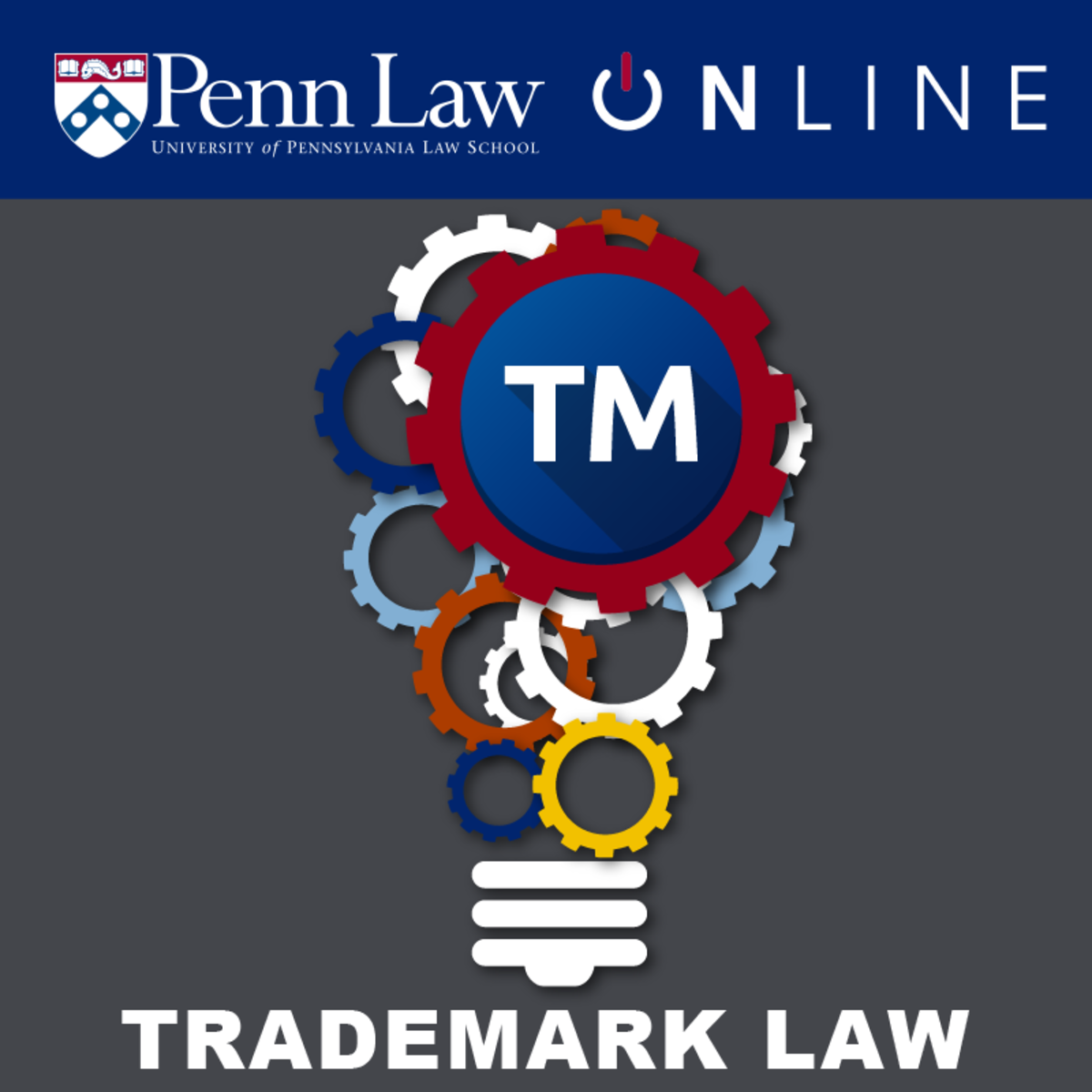Back to Courses









Law Courses - Page 6
Showing results 51-60 of 73

Writing and Editing: Revising
This fourth and final course in the “Good with Words: Writing and Editing” series will help you master perhaps the most important step in the writing process: revising. You’ll learn about the difference between editing and proofreading. You’ll practice “un-numbing the numbers” so that data and statistics you use are clear and compelling. And you’ll be introduced to a framework for giving and receiving feedback that helpfully systematizes what should be cut and what should be kept from each draft.
As with the other three courses in this series, you will also get access to a wide range of books and other resources you can use even after you finish the course. These include: (1) the readings and exercises provided to the students who have taken the in-person version of this course at the University of Michigan and the University of Chicago; (2) two digital libraries of excellent writing from a diverse collection of journalists, scientists, novelists, poets, historians, and entrepreneurs; and (3) a monthly “Good Sentences” email.

Trademark Law
The protections afforded under trademark law have created incredible value in intangible assets, with the value of the world’s most valuable brands such as Amazon, Apple and Google each exceeding $100 billion. But what exactly is trademark law, and how is such enormous value created?
This course examines the fundamentals of U.S. trademark law and the ways in which the manufacturers of various products and services can establish and protect their identities and the identities of their products in the marketplace.
We will explore the purpose of trademark law, identify the different types of trademarks, including names, designs, logos, and trade dress, and explore strategies for choosing and protecting strong, potentially valuable trademarks. We will also discuss strategies for strengthening descriptive marks, and lay out the steps for filing for federal trademark protection. Finally, we will address how to design an ongoing maintenance strategy to protect, extend, and maximize the value of trademarks, and discuss strategies for responding to possible trademark infringement.

A Law Student's Toolkit
Whether you are an advanced law student looking to review the basics, or an aspiring law student looking for head start, this course will help you build the foundation you will need to succeed in law school and beyond. This course will introduce you to terminology, concepts, and tools lawyers and legal academics use to make their arguments. It will help you follow these arguments—and make arguments of your own.
This course consists of a series of short lectures and assignments. A reading list complements each lesson, providing you with a roadmap to help you explore the subject matter more deeply on your own. Although the lessons may cross-reference each other, they are modular in nature: you should feel free to approach them in whatever order fits your schedule, interests, and needs.

Cloud Computing Law: Law Enforcement, Competition, & Tax
Have you ever wondered how a police officer in Europe can obtain evidence from a cloud provider in the USA? Or whether a major cloud provider might abuse its market power? Or in which countries cloud providers pay taxes? If so, then this course is for you!
First, we’ll look at how law enforcement agents can request access to cloud data, including data stored outside their borders. You’ll learn to advise cloud providers on responding to access requests and on dealing with potential conflicts with European Union (‘EU’) data protection law.
Second, we’ll cover EU competition law, including how to define the relevant market for cloud services and to assess market power. You’ll learn to identify when cloud providers might be found to have entered into anti-competitive agreements, or to have abused a dominant position in a market.
Third, we’ll look at how the income from cloud services is taxed. We’ll cover how such income is classified and which countries have the right to tax cloud providers. You’ll learn how tax principles apply to cloud services today, and how this might change in future.
In short, we’ll cover how the rules of law enforcement access, competition law, and tax law apply to cloud services – and you’ll discover the practical steps that cloud providers can take to comply with their obligations.

Genomics for Law
Genomics for Law provides a unique framework to review the history and basics of genomics research as well as explore how genomics has, and will continue to, interact with the law.
Throughout this course you will explore the implications of genomics research on law, as well as law's influence and implications on genomics research, as it pertains to the following topics:
• Genomics and Criminal Law
• Genomics and Criminal Procedure
• Forensic Genomics
• Intellectual Property Protection and Biotechnology
• Genomics and Tort Law
• Genomics and Privacy Law
• Legal and Ethical Issues in Genomics
This course can be taken to fulfill continuing legal education (CLE) credits for practicing lawyers. 10.25 hours have been approved in Illinois.

AI & Law
About this Course
This four-week course titled AI and Law explores the way in which the increasing use of artificially intelligent technologies (AI) affects the practice and administration of law defined in a broad sense. Subject matters discussed include the connection be between AI and Law in the context of legal responsibility, law-making, law-enforcing, criminal law, the medical sector and intellectual property law.
The course aims to equip members of the general public with an elementary ability to understand the meaningful potential of AI for their own lives. The course also aims to enable members of the general public to understand the consequences of using AI and to allow them to interact with AIs in a responsible, helpful, conscientious way. Please note that the law and content presented in this course is current as of the launch date of this course.
At the end of this course, you will have a basic understanding of how to:
• Understand the legal significance of the artificially intelligent software and hardware.
• Understand the impact of the emergence of artificial intelligence on the application and administration of law in the public sector in connection with the enforcement of criminal law, the modelling of law and in the context of administrative law.
• Understand the legal relevance of the use of artificially intelligent software in the private sector in connection with innovation and associated intellectual property rights, in the financial services sector and when predicting outcomes of legal proceedings.
• Understand the importance of artificial intelligence for selected legal fields, including labour law, competition law and health law.
Syllabus and Format
The course consists of four modules where one module represents about one week of part-time studies. A module includes a number of lectures and readings, and finishes with an assessment – a quiz and/or a peer graded assignment. The assessments are intended to encourage learning and ensure that you understand the material of the course. Participating in forum discussions is voluntary.
Modules
Module 1. AI and Law
Module 2. Legal AI in the Public Sector
Module 3. Legal AI in the Private Sector
Module 4. Selected Challenges
Lund University
Lund University was founded in 1666 and has for a number of years been ranked among the world’s top 100 universities. The University has 47 700 students and 7 500 staff based in Lund, Sweden. Lund University unites tradition with a modern, dynamic, and highly international profile. With eight different faculties and numerous research centers and specialized institutes, Lund is the strongest research university in Sweden and one of Scandinavia's largest institutions for education and research. The university annually attracts a large number of international students and offers a wide range of courses and programmes taught in English.
The Faulty of Law is one of Lund University’s four original faculties, dating back to 1666. It is a modern faculty with an international profile, welcoming both international and Swedish students. Education, research and interaction with the surrounding community are the main focus of the Faculty’s work. The connection between the three is particularly apparent in the programmes and courses offered by the university, including the university’s MOOC course in European Business Law. The students get the chance to engross themselves in traditional legal studies, while interacting with both researchers and professionally active lawyers with qualifications and experience from various areas of law.
The faculty offers three international Masters: two 2-year Master’s programmes in International Human Rights Law and European Business Law, and a 1-year Master’s in European and International Tax Law. Students from around 40 countries take part in the programmes which offer a unique subject specialization within each field, with highly qualified researchers and professional legal practitioners engaged in the teaching.

Cloud Computing Law: Data Protection and Cybersecurity
Vast amounts of personal information are processed in the cloud. But who is legally responsible for such ‘personal data’ in cloud environments? What duties do cloud providers like Amazon, Microsoft, and Google have? And what rights can you, as an individual, exercise under data protection law? If you’d like to find out, then this course is for you!
First, we’ll look at how the European Union’s ‘General Data Protection Regulation’ (‘GDPR’) regulates the processing of personal data in cloud services. You’ll learn to identify controllers and processors, describe their roles and responsibilities, and understand how cloud customers and providers can comply in practice.
Second, we’ll look at international transfers of personal data. We’ll explain how the GDPR can apply to cloud providers and their customers anywhere in the world, as well as how restrictions on international transfers apply to cloud services.
Third, we’ll look at how the Network and Information Security (‘NIS’) Directive regulates the cybersecurity of critical infrastructure. You’ll learn to identify cloud providers’ duties to notify security breaches and to keep their services secure, and how to apply those duties to concrete case studies.
In short, this course covers how the GDPR and NIS Directive apply to cloud services and what cloud providers and their customers should do to comply.

Introduction to English Common Law
The common law of England and Wales is one of the major global legal traditions.
This MOOC will give you an introduction to this influential legal system including its history, constitutional background, sources and institutions. You’ll learn about the different ways in which laws are made and interpreted, the English court system and the increasing importance of European Union and human rights law. Now is an especially exciting time to be learning about English common law, given the potential changes that lie ahead in today’s political, economic and social environment – all these pose challenges to and opportunities for the law.
Each week we’ll focus on one aspect of English common law, using video lectures, readings, discussion questions and activities to enable you to learn about and evaluate key issues. Whether undertaken as a standalone course, or as preparation for the University of London’s world-class LLB degree, you will find this course interesting and stimulating.
Please note that participation in or completion of this online course will not confer academic credit for University of London programmes.

Privacy & Standardisation Capstone
Welcome to the capstone on the specialisation on Privacy & Standardisation. This capstone will build on the knowledge you obtained in the courses: Standardisation & Technology, Privacy in the Western World, Privacy in the USA and Privacy in Europe. The capstone will help you build a comprehensive opinion and it will challenge you in all areas of present-day privacy protection. The assignments invite you to use and revisit the material of all the courses. This capstone will link historic milestones to current limitations and offer you a journey through jurisdictions and technological fields alike.
Whereas in the previous courses you were assessed by quizzes, the capstone will require you to carefully consider all you have learned so far and detail your opinion. The assessment in this course will mainly be done by in-depth assignments. Use the few practice exercises well to give you a head start in the graded assignments!

After the Arab Spring – Democratic Aspirations and State Failure
Learn why the hope and excitement of the Arab Spring is gone, why so many Arab states are falling apart, why the youth are so frustrated, why there are so many refugees, and what can be done about it.
The so-called Arab Spring appeared to end decades of exceptionalism and bring the Arab world back into the mainstream of global developments. The rebellions promised the return of politics and the reassertion of popular sovereignty against their corrupt and geriatric leaders. Much hope and flowery language greeted the young men and women who deposed their leaders and tried to build new, better societies.
Today, the Arab world is in deep crisis. Of the 22 member states of the Arab League, at least five have essentially collapsed: Iraq, Libya, Yemen, Somalia and Syria exist only in name today, as their territories have fallen to competing, murderous armed groups. In the remaining countries, the old autocracies have reasserted themselves. The repression at home is now worsened by regional conflict on an unprecedented scale, and the resulting frustration has led to the biggest refugee flows in recent memory. What went wrong?
This course offers an overview of the structural shortcomings of Arab states and societies, which help us understand why the democratic awakening did not happen but instead “has given way to civil wars, ethnic, sectarian and regional divisions and the reassertion of absolutism.” This raises the obvious and renewed question whether there is something inherent in the Arab, and by analogy Muslim, condition that makes them special. Does this condition make this part of the world impervious to generally observable trends towards greater accountability, popular participation in political decision-making, greater generation and fairer division of economic wealth? Join this course to find out!
Popular Internships and Jobs by Categories
Browse
© 2024 BoostGrad | All rights reserved


